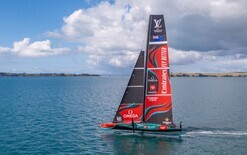Takata airbags recall good for consumers

Manufacturers and importers have 18 months to close out repairs on affected vehicles. The recall was previously voluntary, covering about 452,000 vehicles with more than 307,000 yet to be fixed. That’s a poor return for a recall ongoing for almost five years. The compulsory recall applies to vehicles fitted with older “alpha” generation airbags, while the remaining vehicles remain under voluntary recall. Dr Paul Smith said: “Making the recall compulsory will provide clarity for consumers over whether their car is affected and reassure them that the riskiest airbags are being prioritised. It sends a clear message to the industry they haven’t been acting swiftly enough to protect Kiwi motorists.” “Not all Takata airbags will explode on deployment, in fact it’s unlikely – a one in 400 risk is reported globally. But the older ‘alpha’ airbags, fitted to cars manufactured between 2001 and 2006, are more dangerous – tests have shown there’s a chance every other deployment could be explosive.” The compulsory recall makes manufacturers and importers responsible for the fix and sets a timeline of 18 months to close out repairs on all vehicles fitted with “alpha” airbags. It also prohibits further import of vehicles with these airbags. What’s the Takata problem? Airbags manufactured by the Japanese Takata company, fitted to about 100 million vehicles worldwide, are potentially defective. The airbag inflator can be adversely affected by moisture, with the result being it could deploy with explosive force when in a crash. In the worst cases they have sent metal shards flying into the passenger cabin. Faulty Takata airbags have caused a reported 23 deaths and more than 230 injuries worldwide. No explosive deployments, injuries or fatalities have been reported here. Manufacturers have been recalling vehicles with these faulty airbags since 2013. It isn’t just cheap or Japanese vehicles – the list includes most European manufacturers and luxury models from brands such as Ferrari and Jaguar. The risk of failure is greatest if the car’s in a hot and humid environment. Recalls in Australia and the US have prioritised vehicles in areas of highest heat and humidity. We enjoy a temperate climate, so failure here is less likely, even for the oldest airbags. But we have an old vehicle fleet by international standards – the average car on our roads was manufactured in 2004. That explains why we have twice as many alpha airbags on our roads awaiting repair than the Australians do on theirs – despite their recall covering 10 times as many Takata-equipped cars. So the risk shouldn’t be ignored. Drivers affected by the compulsory recall will get a letter from the manufacturer or importer when parts are available to fix their car. Dr Smith advises, “if you get a letter – you need to act. Take your car to be fixed, it’ll cost you nothing.” Consumer NZ advises owners of cars manufactured between 2001 and 2006, to contact the manufacturer (for NZ-new cars) or importer (for used-imports) – don’t wait for a letter to arrive. It can be difficult to track down the importer, so go to the dealer you bought the car from – they should be able to help, and might even be the importer. Consumer NZ members affected by the recall can contact the Advice Line for assistance 0800 CONSUMER (0800 266 786).





